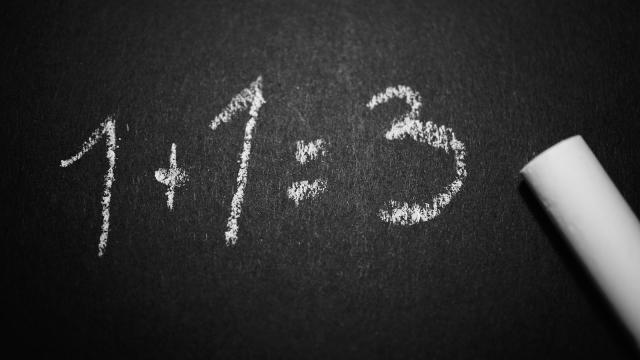In any argument, it can be hard to tell who is wrong and who is right. Except when you’re one of the involved parties, that is — because you’re definitely right. Right?
It turns out, you might not be!
Humans find it difficult to know when they’re in the wrong, and it’s even harder for them to back down from a position once they’ve taken it. The ability to do so is called “intellectual humility,” according to Vox writer Brian Resnick, who interviewed a number of social scientists who are essentially studying what it takes to become humble. Intellectual humility is not the same thing as lacking confidence or being shy; it’s focused on curiosity:
It’s about entertaining the possibility that you may be wrong and being open to learning from the experience of others. Intellectual humility is about being actively curious about your blind spots. One illustration is in the ideal of the scientific method, where a scientist actively works against her own hypothesis, attempting to rule out any other alternative explanations for a phenomenon before settling on a conclusion. It’s about asking: What am I missing here?
There are benefits to being intellectually humble besides being the first person to end an argument. Folks with the ability to self-reflect and question are often better critical thinkers and are better able to tell real stories from “fake news.” It’s harder to make a fool of someone who questions everything, including what’s coming out of their own mouth.
Understand Your Brain
We tend to think of truth as being some sort of measurable absolute, but the reality is that two people can experience the same thing completely differently — not just because of their experiences or background, but because of how their brain process information. Resnick gives the example of the Yanny/Laurel debate, or that horrible argument over The Dress. One thing can sound or look different from person to person:
Light enters our eyes, sound waves enter our ears, chemicals waft into our noses, and it’s up to our brains to make a guess about what it all is.
So, first off: Instead of assuming someone else doesn’t know what they’re talking about or is a straight up-liar, consider how your brains might simply process information differently.
Another interesting thing about how the brain works is that the more often we hear a lie, the more likely we are to consider it true (which explains a lot about the world right now). When you hear something repeated, it becomes easier to understand, and when something feels easy to understand, you consider it to be “reality.” It’s important to remember that just because something feels easy doesn’t mean it’s true.
Finally, your memories are unreliable. This is a difficult thing to grapple with, because our memories are what we construct our history and sense of self on. When those things get disrupted, it can be frightening. Fear generally leads to anger, and anger is never helpful in a fight. If two people can’t agree on what happened, it may be that both of them are telling the truth, just remembering it differently.
Add Humility In Slowly
To avoid the destabilizing sensation of questioning everything you remember and believe, try adding intellectual humility into your life bit by bit. University of Connecticut philosophy professor Michael Lynch told Resnick that people need personal convictions, and it’s all a balancing act.
“The personal question, the existential question that faces you and I and every thinking human being, is, ‘How do you maintain an open mind toward others and yet, at the same time, keep your strong moral convictions?’” Lynch says. “That’s an issue for all of us.”
That means be open to reviewing your convictions, allow them room to grow and change, and question the flaws within them. And when you discover you were wrong, learn to admit it.
Admitting You’re Wrong
This is, of course, the hardest part. But if you’re willing to put in the work of seeing someone else’s point of view, why stop yourself? It’s hard to do, but there should be some solace in the fact that, according to Resnick, people don’t judge you as harshly as you might judge yourself:
As Adam Fetterman, a social psychologist at the University of Texas El Paso, has found in a few studies, wrongness admission isn’t usually judged harshly. “When we do see someone admit that they are wrong, the wrongness admitter is seen as more communal, more friendly,” he says. It’s almost never the case, in his studies, “that when you admit you’re wrong, people think you are less competent.”
Intellectual humility: the importance of knowing you might be wrong | Vox

Comments
One response to “How To Know When You Might Actually Be Wrong”
This is supposed to be ironic, right? Right?!